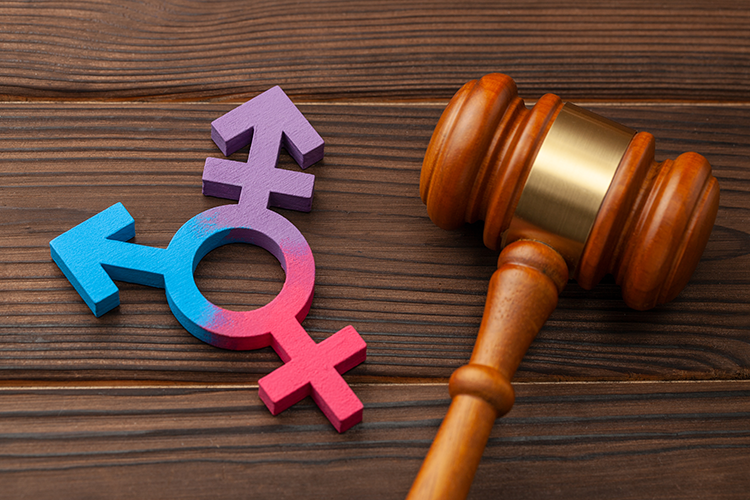Court blocks enforcement of Title IX rules protecting transgender students

Image from Shutterstock.
A federal court temporarily blocked the Education Department from enforcing new regulations aimed at protecting transgender students in schools, finding that opponents who sued to stop it are likely to prevail when the case is fully considered.
The sweeping set of rules, issued in April, represent the Biden administration’s interpretation of Title IX, a half-century old law that bars discrimination in schools based on sex. The rules are set to take effect Aug. 1, and impact every K-12 school, college and university in the country that accepts any type of federal funding.
The regulation states that discrimination based on sex includes discrimination based on gender identity and sexual orientation, and would require, for instance, schools to allow transgender students use bathrooms and locker rooms that align with their gender identity and to use students’ preferred pronouns.
It was challenged in federal court by four states—Louisiana, Mississippi, Montana and Idaho. The preliminary injunction applies in only those four states, though similar challenges are pending in other states. Thursday’s order was the first ruling in any of the cases.
The injunction was issued Thursday by U.S. District Judge Terry A. Doughty, chief of the Western District of Louisiana, who wrote that protecting “biological males” as if they were female subverts the purpose of Title IX. He said the regulation represented an “abuse of power” on the part of the Biden administration.
“Title IX was enacted for the protection of the discrimination of biological females. However, the Final Rule may likely cause biological females more discrimination than they had before Title IX was enacted,” he wrote. By “allowing biological men who identify as a female into locker rooms, showers, and bathrooms, biological females risk invasion of privacy, embarrassment, and sexual assault.”
The Biden administration regulation also sets out rules for how schools must respond to and adjudicate allegations of sex discrimination. including sexual assault, and the court found that some of the new standards are overly broad. But it is the rules around gender identity that have drawn the most opposition and that were the focus of Doughty’s order.
The Education Department is reviewing the ruling but stands by the regulations, said spokesperson Vanessa Harmoush. She said the rules were crafted “following a rigorous process” to assure that no person experiences sex discrimination in a federally funded educational environment. “We will continue to fight for every student,” she said.
The Human Rights Campaign, an advocacy group for the LGBTQ+ community, said it, too, would fight for the protections outlined in the regulation.
“Today’s decision prioritizes anti-LGBTQ+ hate over the safety and well-being of students in the state. This is MAGA theatrics with the dangerous goal of weaving discrimination into law,” Kelley Robinson, the group’s president, said in a statement.
Opponents of the Biden administration’s regulation hailed the ruling and noted the other pending challenges.
“We are confident that other courts and states will soon follow,” said Bob Eitel, president of the Defense of Freedom Institute, an advocacy group that served as co-counsel to the states challenging the regulation.
The Biden administration’s regulation put off the question of how schools should handle the controversial question of athletics, and whether trans women should be allowed to compete in girls’ and women’s sports. A separate regulation on that question is pending.
But in his ruling, Doughty said that the implication of the regulation that was issued is that schools would be forced to let transgender girls and women compete, which he argued would “essentially reverse the entire premise of Title IX,” which was aimed in part at giving girls and women equal access to sports.
The Biden administration has long argued that Title IX’s protections extend to questions of gender identity and sexual orientation, but the Title IX regulation was the first time the Education Department put that interpretation into a binding regulation.
In issuing its Title IX rules, administration officials pointed to a 2020 Supreme Court ruling in Bostock v. Clayton County, which found sex discrimination in employment includes gender identity and sexual orientation. The same logic applies to Title IX, they said.
The judge rejected that interpretation, saying among other things that the high court has not specifically said whether its reasoning extends to other civil rights laws. He also argued that the underlying statutes differ.
Write a letter to the editor, share a story tip or update, or report an error.


